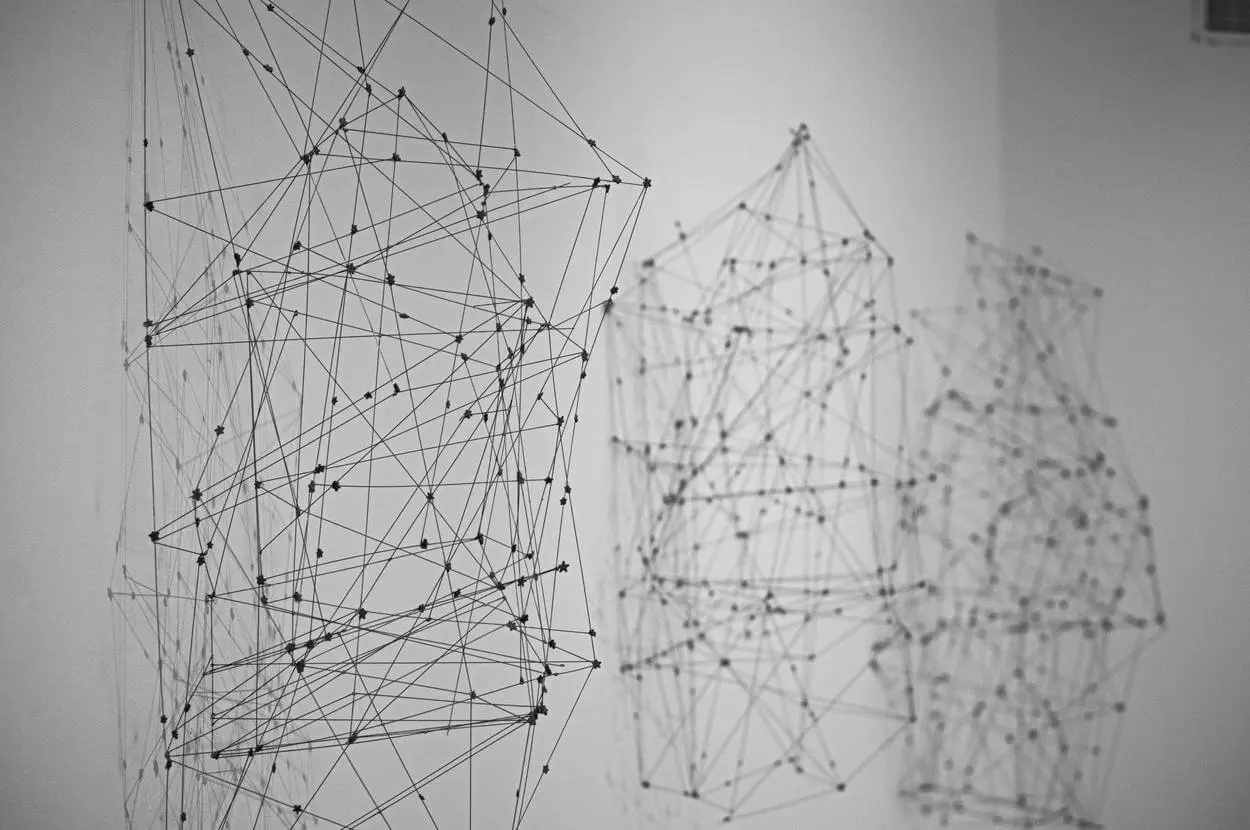You probably interchangeably use the words “complex” and “complicated.” But this isn’t something unusual, because most of us do! Both of these words mean difficult anyway.
I guess Dr Peter Mark Roget and his thesaurus’ play a big part. Because of him, most believed that “complex” and “complicated” are synonyms.
However, an associate professor of finance, Rick Nason, disagreed with him. He explains in his new book the uses of the words complex and complicated in entirely different contexts.
He also said that complicated problems can be hard to solve but are still addressable if specific rules, systems, and processes are used. However, the solutions used for complicated issues don’t work well with complex issues.
When one makes a decision, they commonly mistake complex as simply complicated ones and then set themselves up for failure to solve them.
Let’s examine how these two terms differ and understand them using system theory!
Basic Definitions
Every word has its basic definition. The meaning of “complex” consists of many different parts that are usually interconnected. An excellent example is “a complex network of water channels.”
In contrast, “complicated” means difficult to deal with or understand. It refers to a certain level of difficulty. As adjectives, the difference between the two is that complicated is difficult or convoluted. The complex is made up of multiple composites and is not simple. As a noun, the difference between both terms is that complex is usually referred to as a problem, but complicated is mainly used for social situations like feelings or emotions.
But how are they different using various perspectives and contexts?
System Theory
“Complex” is a term used to refer to the level of components. If a problem is complex, then this means that it has many degrees.
On the other hand, “complicated” is used for situations with a higher difficulty level. That is to say, if a problem is complicated, there might or might not be many parts to it, but it will require immense effort and hard work to be solved.
According to Nason, a complicated issue is one in which the components can be separated and dealt with systematically and logically. This way uses an approach based on rules and algorithms.
Although it’s hard to point out, there’s always a fixed order to something merely complicated. For instance, making a reusable rocket is tough, but it does have a systematic manner in which you can do it.
The rockets are interconnected and work together; understanding them could be complex. However, everything can be mapped out and understood.
If we look at a complex issue, that is an entirely different story!
This type of issue is where you can’t get a firm grip on different parts, and there isn’t any algorithm or rules you can follow to solve them. Nason believes that complex things have no degree of order or predictability.
This makes a complex issue more challenging because its interrelated parts interact unpredictably. If managing people is challenging, figuring out how a market would react to a new product is difficult. There is so much uncertainty related to the word “complex.”
In short, complicated systems are highly predictable, and complex systems are the opposite. The complex is primarily unpredictable matters that are hard to control.
Mathematical Point Of View
If you look at the two from a mathematical perspective, it claims that complicated problems or systems tend to be “large” but still pretty solvable. They can be fully understood, meaning their underlying mechanisms or components are knowable.
In comparison, complex problems appear to be non-deterministic or non-solvable. You cannot fully understand these things, so the item is sensitive to underlying mechanisms or component changes.
So, even this view supports the idea that complexity doesn’t mean the same thing and is used in different contexts. Here’s a video to help give you a better idea.
How Do You Tell if a Problem is Complex or Simply Complicated?
It’s easy to spot on. Complicated challenges are said to be technical, while complex ones are said to be near the impossible. Even though humans are pretty good at linear thinking, they can’t solve complex problems immediately.
Do you ever wonder why humans can build robots performing delicate surgeries but struggle to figure out why a business unit isn’t doing well? This is because humans can make linear connections to master sophisticated technical challenges- complicated issues.
These issues have straight-line, step-by-step solutions and are usually predictable. People with the right expertise can design efficient and easy solutions to implement.
However, when it comes to multi-dimensional challenges, humans get stuck. This is because complex challenges tend to require innovative responses.
If something is considered complex, it usually means its structure is not simple. You may connect its many different parts in a non-trivial way. In such a case, there’s no straight line to a solution, and you probably have to wait and see how it goes.

What is Meant by a Complex Problem?
It means a problem is unpredictable and highly challenging. Complex problems tend to include the ability to be approached from multiple competing perspectives and have several different solutions.
So, in this case, there aren’t any clear-cut steps to follow or algorithms to observe, but rather a bunch of different attempts in the hope of solving the issue.
Example of a Complex Problem
A self-driving train can be complex! All because it has many different systems on board. Controlling the temperature, closing or opening doors, and recognizing the stations differ.
However, it’s not complex but complicated for the people who ride it, too, in the beginning. Once they start following steps and a procedure, solving the problem becomes more manageable.
Some more examples of a complex problem include:
- Climate change
- World poverty
- Child abuse
- Terrorism
- Global financial crisis
Such issues are categorized as “complex” because of their very challenging nature. These issues are a lot to think about and solve, and systems can only try different things rather than following single steps.
What is Meant by a Complicated Problem?
The term “complicated” implies that something is difficult. It usually means various factors to consider before obtaining an answer because of the higher difficulty level.
A complicated medical procedure can be an example of this. However, even if complex, it still has specific rules that help solve the problem or execute the process.

How Complicated Can A Person Be?
I don’t think there’s such a thing as a complex person. But there are complicated ones. Just like problems, this type of people is hard to get.
To get what they want, you must already have a background of what they are as a person. Complicated persons tend to sulk. In addition, they can also be easily offended.
They also tend to promise things they don’t do themselves. This is what really makes them complicated. How can one say one thing and then do the other?
But don’t worry. No matter how often they sulk, they would return to the usual. I suggest you jot down what makes them irritable to avoid an argument.
Complicated vs. Complex (Examples)
Complex usually refers to “how much,” meaning a lot is happening. At the same time, complicated refers to “how difficult,” which means how hard it is.
This can often lead to both with the same basic meaning, as complex can be inferred to mean complicated.
A plan can be both complex and complicated!
However, the use of complex is specific to its level of detail. You will consider a planned complex because it is challenging to execute. This could be because it has many components that can’t be solved through specific steps.
On the other hand, a plan can also be complicated because it has many different components. However, the difficulty level is reduced because the details can be dealt with systematically.
Another difference is that complex often refers to a more internal state owned by the object. At the same time, complicated may refer to a more external state. For example, a complex building has a lot of different parts, such as rooms and annexes. In contrast, a complicated structure might have a complicated or diverse history.
Here’s a table with a few examples to help differentiate between the terms complex vs. complicated:
| Complex | Complicated |
| Disrupting the automotive industry | Fixing a car. |
| Consistently delivering a customer-winning experience. | Implementing a customer relationship management system |
| A shopping complex with many separate businesses | A complicated question that is difficult to resolve |
| Executing on a robust innovation agenda | Rolling out idea management software |
| Managing urban traffic congestion. | Building a highway |
One thing to note in these examples is that all complicated problems seem to instigate thinking where one believes they can be solved calculatedly, whereas complex issues are more mind-boggling!
Final Thoughts
I hope the examples in this article go some way in helping clarify the difference between complex and complicated.
- Complex” and “complicated” terms are often used in an alternate manner. But they have distinct meanings.
- Complex refers to having many interconnected parts. While complicated means difficult to understand or deal with.
- In system theory, complex problems lack predictability and have interrelated, unpredictable components.
- Difficult problems can be solved step by step using clear rules and instructions.
- Climate change or terrorism are complex issues because of their unpredictability.
- Complicated cases may be tough but have knowable underlying mechanisms.
- Complex people can be difficult to understand. In contrast, complicated people tend to have unpredictable behaviour.
- Examples and contexts help differentiate between complex and complicated issues. Complex ones are often related to technical matters. And complicated ones are related to social situations.
Other Must-Read Articles
- WHAT IS THE MAIN DIFFERENCE BETWEEN SAYING 1/1000 AND 1:1000? (QUERY SOLVED)
- THE DIFFERENCE BETWEEN MY LIEGE AND MY LORD
- WHAT ARE THE DIFFERENCES BETWEEN ONLYFANS AND JUSTFOR.FANS? (ALL YOU NEED TO KNOW)
Click here to see the web story version of complex and complicated differences.

